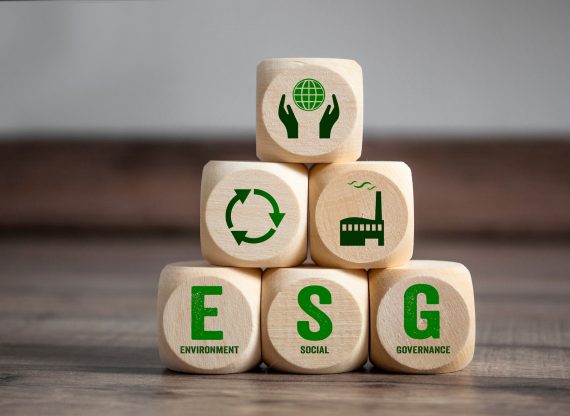Small business should not suffer from new federal climate standards

Every era has its characteristic corporate buzzword. The nineties had “synergy.” The early 2000s added a lowercase “e” prefix to about everything. And now, we’re in the era of “ESG,” also known as environmental, social and governance criteria.
Ottawa has been the latest to jump on the ESG bandwagon, committing in its latest budget to mandatory reporting of climate-related financial risk across a wide range of Canadian industries.
While Ottawa’s pledge is a bit short on details, another organization has laid out what this might look like.
The Canadian Securities Administrators, an umbrella group of provincial and territorial regulators, is tasked with recommending the mandatory financial and ESG reporting standards for publicly listed Canadian companies.
One such set of standards it’s looking at quite closely is those of the International Sustainability Standards Board (ISSB) and the set of standards put forward by the ISSB is quite similar to what the federal government has hinted at.
Should those ESG reporting requirements be adopted as is, publicly listed Canadian companies would be required to disclose all upstream and downstream greenhouse gas emissions, among other things.
Take an auto parts manufacturer in Oshawa, for instance. It would first have to count the emissions it’s directly responsible for as part of its manufacturing process. These are referred to as “Scope 1 emissions.”
Then, it would have to report on the emissions generated in operating its facilities—things like heating, AC and electricity. This would involve collecting emissions intensity data for various utilities, for example. These are referred to as “Scope 2 emissions.”
The company would then have to figure out and report on lifecycle emissions. That means suppliers, consumers, and disposal—from the place the iron ore was mined all the way to the buyer using that finished automobile, and on to the scrapyard where it ends up being recycled. These are “Scope 3 emissions.”
Unsurprisingly, Scope 3 emissions are the hardest to quantify, one of the reasons they are referred to as the “fatal flaw” in greenhouse gas emissions (GHG) reporting.
For large corporations, meeting ESG requirements is a hassle, but it’s not insurmountable. It does mean spending anywhere from a few hundred thousand to a few million extra every year on compliance and, most likely, passing the cost on to Canadian consumers.
For smaller businesses, though, this can be deadly, as they don’t have the means to pay an army of professional accountants to file reports for them. They typically can’t afford a compliance officer, much less an entire department, to do that sort of work.
Some would argue that since this requirement would only apply to publicly listed companies, smaller businesses would be unaffected. But even setting aside the hundreds of small or medium-sized enterprises (SMEs) — a lot of them in the resource sector — that are listed on the Toronto Stock Exchange, it would still affect a lot of smaller companies, albeit indirectly. Specifically, it would hamper their ability to do business with those larger publicly traded firms.
Take that same auto parts manufacturer. While it is most likely an SME, its clients are large automobile manufacturers like General Motors. Currently, its ability to do business with GM is based on its prices, quality, and reliability. That’s how it remains competitive.
But once GM starts having to report Scope 3 emissions, it will need to get that data from its suppliers, and from their suppliers.
That’s how, despite not being directly targeted by those regulatory reporting requirements, even small and medium-sized businesses might be forced to pay the cost and comply in order to keep doing business with larger firms.
And that’s one of the reasons why, when the proposed disclosure standards were open for consultation, many of the over 80 Canadian organizations that submitted comments voiced their concern.
As Canada’s small businesses try to get back on their feet after the pandemic, including having to navigate a worker shortage, the last thing they need are extra costs to be piled onto them, all for the sake of the latest buzzword.
Krystle Wittevrongel is a Senior Policy Analyst and Alberta Project Lead at the MEI. She is the author of “ESG Disclosure: Mandatory Inclusion of Scope 3 Emissions Will Hurt Small Businesses” and the views reflected in this opinion piece are her own.

